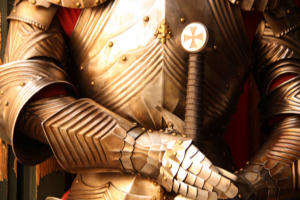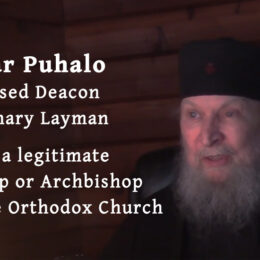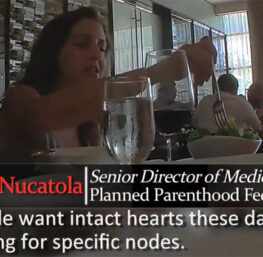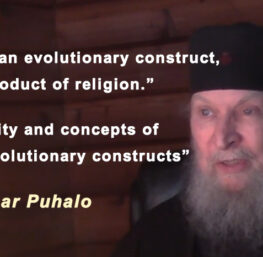 by Deacon Keith Fournier –
by Deacon Keith Fournier –
Two years before becoming Pope, Karol Cardinal Wotyla spoke to the U.S. Bishops. His observation was republished in the Wall Street Journal on November 9, 1978:
“We are now standing in the face of the greatest historical confrontation humanity has gone through. I do not think that wide circles of the American society or wide circles of the Christian community realize this fully. We are now facing the final confrontation between the Church and the anti-Church, of the Gospel and the anti-Gospel. This confrontation lies within the plans of divine providence. It is a trial which the whole Church must take up.”
And take it up we have. However, there is much, much more to do. The ground has shifted and the struggle is intensifying. Our cultural mission lies at the heart of what it means for us as Christians to be leaven, light, salt and the soul of the world. This is no time to retreat from culture, we must work for its conversion. What is needed are men and women of Christian courage.
Christians must be leaven, light, salt and the soul of the world
The struggle we face in an increasingly hostile western culture involves a clash of worldviews, personal and corporate, and competing definitions of human freedom, human dignity, and human flourishing. We need to see our struggle in light of our own Christian history. I do not care how modern the issues of this age purport to be, humans do not change all that much, at least without grace. We need to engage the dictatorship of relativism which claims there are no truths and insist that there is Truth, it can be known – and it must govern our lives. This means facing persecution. Our path is already paved with the insults, accusations and calumny of our fellow citizens. It will get worse.
We are Pro-life because it is right.
We are accused of being against progress and anti-science for defending the dignity of every human life – including the lives of our first neighbors in the womb. Nothing could be further from the truth. We are Pro-life because it is right. Science exists to serve the person, the family and the common good. In an age deluded by the architects of a cultural order of death we will never compromise on the truth concerning the dignity of every human life from conception through natural death. Science confirms what our conscience confirmed, those little girls and boys in the womb are our neighbors. It is always wrong to intentionally kill our innocent neighbors. To say and do otherwise is barbaric.
children have a right to a mother and a father
We insist that true marriage and family have been inscribed by the Divine Architect into the order of the universe. That is because they have. Truth does not change, people and cultures do; sometimes for good and sometimes for evil. Marriage is the first society into which children are to be born, learn to be fully human, grow in virtue, flourish and take their role in families and communities. We must not be afraid to make the claim that children have a right to a mother and a father. They do. Of course we care about the single parent family and the many broken homes. However, their existence does not change the norm necessary for a stable and healthy society. In tact marriages and families are the glue of a healthy and happy social order. We need to be a visible, palpable reflection of this truth about marriage and family in our own lives. To live a faithful marriage is now countercultural.
Our convictions and claims concerning life and marriage are not outdated notions of a past era but provide the path to the future. We also insist upon the existence of a Natural Moral Law which can be known by all men and women through the exercise of reason. This is not only a Christian position. It is the ground upon which every great civilization has been built. It is the source for every great and authentic human and civil rights movement. The Natural Law gives us the moral norms we need to build societies and govern ourselves. It must also inform our positive law or we will become lawless and devolve into anarchy.
the early Christians were called to live in and transform cultures
The early Church was sent into cultures filled with people who thought they were advanced in light of the arts and sciences of their day. Yet, those cultures practiced primitive forms of abortion and even exposure, a practice of leaving unwanted children on rocks to be eaten by birds of prey or picked up by slave traders. Ancient Christian manuscripts such as the Didache (the Teaching of the Twelve), the Letter to Diognetus and other early Christian sources reveal that the early Christians were called to live in and transform cultures mush like our own. Cultures of use where people were treated as property, cultures of excess where freedom was perceived as a power over others and license masqueraded as liberty. They changed them from within.
Many of the gods and goddesses of the old pagan regimes they faced promoted lives of selfish excess, homosexual practices, and hedonism masquerading as freedom. The myths they told had the pagan gods acting in much the same way. Our western culture is now sliding through secularism into paganism. The myths, tributes and statues of today are different but the reality is no different. Contemporary paganism, like the paganism of old, is not the path to authentic human freedom and flourishing but to misery and a loss of freedom.
The early Christians did not rail against the pagans of their age when they sought to effect the conversion of those cultures. They proclaimed the fullness of freedom which is found in Jesus Christ to all who would listen to them. They did not change their message to the culture but changed the culture through their message. They also demonstrated its truths with their compelling witness of life. They lived in monogamous marriages, raised their children to be faithful Christians and good citizens, and went into the world of their age offering it a new way to live. This way (which is what they first called the early Church) revealed a very different worldview than the one that the pagans embraced.
It was the Christian faith and the practices of these Christians that began to win the hearts of men and women.
With joy and integrity the early Christians lived that way in the midst of their pagan cultures. As a result, they sometimes stirred up hostility. Some of them were martyred in the red martyrdom of shed blood. Countless more joined the train of what use to be called white martyrdom, living lives of sacrificial witness and service in the culture, working hard and staying faithful to the end of a long life spent in missionary toil.
Slowly, not only were small numbers of pagans converted and baptized, but eventually their leaders and entire Nations followed suit. Resultantly, the Christian worldview began to influence the social order. The clash of freedoms continued, but the climate changed significantly. It was the Christian faith and the practices of these Christians that began to win the hearts of men and women. The cultures once enshrined to pagan practices, such as plural marriage, homosexuality, exposure and abortion began to change dramatically and this dynamic continued for centuries.
It was Christianity that taught such novel concepts as the dignity of every person and their equality before the One God. The Christians proclaimed the dignity of women, the dignity of chaste marriage and the sanctity of the family. It was Christianity that introduced the understanding of freedom not simply as a freedom from, but as a freedom for living responsibly and with integrity. The Christians insisted that freedom must be exercised with reference to a moral code, a law higher than the emperor, or the shifting sands of public opinion.
It was the Christians who understood that choice, rightly exercised, meant always choosing what was right and that the freedom to exercise that choice brought with it an obligation and concern for the other. They knew that freedom has a moral constitution and must be exercised in reference to truth. Their Christian faith presented a coherent and compelling answer to the existential questions that plagued the ancients, such as why we existed and how we got here. What was the purpose of life? Questions like how evil came into the world and why we could not always make right choices? What force seemed to move us toward evil and how we could be set free from its power?
Christian philosophy began to flourish. Philosophies of government and economic theory began to be influenced by principles derived from a Christian anthropology and worldview. Christians helped to create the beautiful art which humanizedcultures. Christian artists knew that Creation and Redemption are part of a grand masterpiece by the Divine Artist and there is a connection between beauty and the Christian vocation to manifest the presence of the living God in this world which He still loves. Christians were – and are – the true humanists. That is because to be fully Christian is to be fully human.
This is no time to retreat from culture, we must work for its conversion.
We need to learn from the example of those who have engaged the very struggle we now face. Like them, we must also remember that what we are engaged in is first a spiritual struggle. Our victories will first be won in prayer and then must stepped into a new Christian missionary movement from the heart of the Church for the sake of the world. That movement will flourish and spread through the witness of a vibrant, theologically orthodox, faithful Christianity that is engaging, relevant and compelling to the new pagans of our age. It will bring about the conversion of persons, families and culture as it has in the past. It will pave the way for the future.
In 1999 the Pontifical Council for Culture of the Vatican released an insightful document entitled “Toward a Pastoral Approach to Culture”. It contains helpful insights for us as we consider the road ahead in our work to convert the culture. Here is an excerpt: “From the time the Gospel was first preached, the Church has known the process of encounter and engagement with cultures” (Fides et Ratio, 70), for “it is one of the properties of the human person that he can achieve true and full humanity only by means of culture”(Gaudium et Spes, 53).
This is no time to retreat from culture, we must work for its conversion.
HT: Catholic Online



